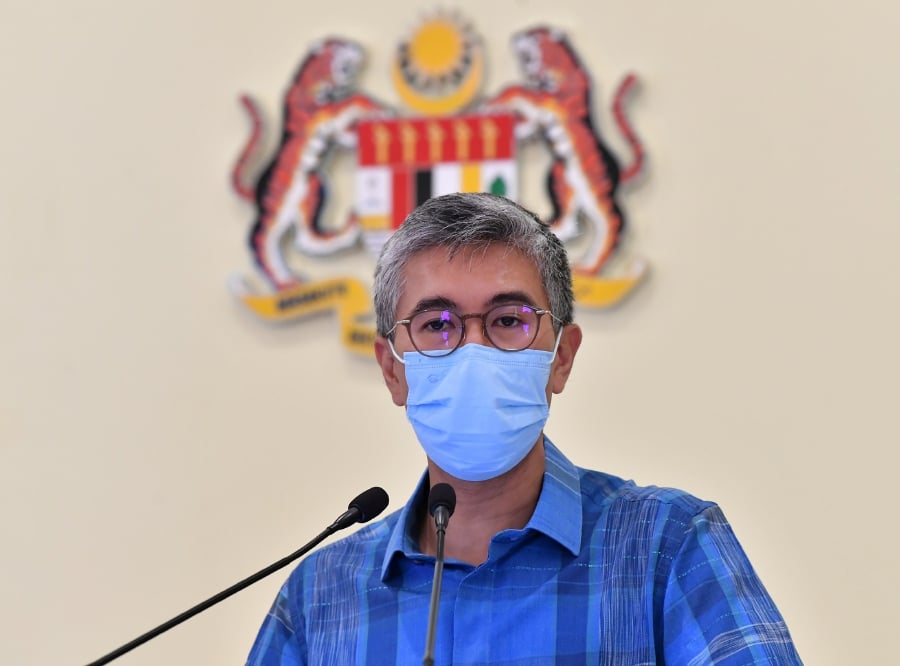Azanis Shahila Aman
KUALA LUMPUR: The affirmation of Malaysia's long-term foreign-currency issuer default rating by Fitch Ratings demonstrates the economy's resilience in an uncertain environment.
Additionally, it demonstrates Malaysia's favourable medium-term growth prospects and a stable current account surplus, facilitated by the country's diverse market and export base.
Finance Minister Tengku Datuk Seri Zafrul Abdul Aziz said such affirmation comes amidst unprecedented credit rating pressures globally, where the three main credit rating agencies (CRA) had issued 101 negative outlook positions as of end-2020.
"Malaysia has consistently registered a current account surplus over the past two decades with its largest-ever trade surplus of RM184.8 billion in 2020, equivalent to 4.2 per cent of gross domestic product (GDP).
"Adequate international reserves further support this, significant external assets held by banks and corporates, as well as net foreign currency external asset position of RM1.1 trillion or 77.0 per cent of GDP as at end-March 2021.
"These factors, supported by a flexible exchange rate policy, underpin Malaysia's ability to withstand external shocks," he said in a statement today.
Fitch Ratings today affirmed Malaysia's long-term foreign-currency issuer default rating at BBB+, with a stable outlook.
Zafrul also noted that Malaysia had announced its National Recovery Plan (NRP) – a dynamic, flexible and forward-looking strategy guided by data and science.
Premised on a holistic approach, Zafrul said the government would enlist industry experts, non-governmental organisations (NGOs), community leaders, and the general public in implementing the NRP.
"The NRP's systematic approach is expected to strike a good balance between protecting lives and safeguarding livelihoods.
"Notably, since the NRP's implementation on June 1, 2021, eight out of 14 states in Malaysia have recorded a significant decline in new cases, allowing them to shift to phase two over the past week, where more economic sectors and social activities are allowed under strict compliance to SOPs," he said.
Zafrul said the National Covid-19 Immunisation Programme (PICK) continues to be ramped up to hasten economic recovery.
Malaysia is currently one of the fastest nations in the world to administer vaccinations, with more than 400,000 doses daily.
Based on this fast-track approach, 100 per cent of the adult population are expected to be fully inoculated by the end of October, he said.
Other factors, he said, that will contribute to Malaysia's economic recovery are increased external demand from major trading partners and the implementation of infrastructure projects with a high multiplier effect.
"Other supporting factors include Malaysia's economic fundamentals, as well as its depth and breadth, enabling it to remain resilient even during difficult times.
"Notably, Fitch has acknowledged that Malaysia's manufacturing sector and exports will continue to benefit from thriving global demand for the country's products like electrical and electronics (E&E), crude oil and personal protective equipment," said Zafrul.
Moving forward, Zafrul said digitalisation and technological adoption would be a national priority for boosting Malaysia's longer-term economic prospects and resilience.
"This will be pursued in tandem with the government's commitment to medium-term structural reforms to attract higher-quality investments, as well as generate high-skilled and high-paying jobs.
"The government remains committed to ensuring fiscal sustainability and medium-term fiscal consolidation," he said.
Zafrul said framework and supported by the gradual implementation of the medium-term revenue strategy, which aims to improve the country's revenue base, the government will resume its consolidation path when the country exits the pandemic.
He said this would balance short-term fiscal requirements with long-term fiscal and economic sustainability.
"Overall, the government's current priority is to protect lives from the threat of Covid-19 and ensure the country's economic growth prospects remain strong in the medium to longer-term, guided by the NRP and the principles of prudent financial management.
"The government will continue to respond strategically, proactively and decisively under this challenging Covid-19 environment while also minimising permanent economic scarring from the pandemic crisis," he added.





